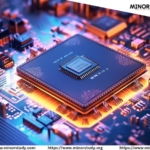BTech (Bachelor of Technology): Overview
Bachelor of Technology (BTech) is an undergraduate engineering degree program that focuses on the application of technology and scientific principles to solve real-world problems. The program typically spans four years, divided into eight semesters. BTech is one of the most sought-after degrees for students aspiring to pursue careers in engineering and technology.
Key Features of BTech
Aspect | Details |
Program Duration | 4 years (8 semesters) |
Eligibility | 10+2 with Physics, Chemistry, and Mathematics (PCM) |
Objective | To equip students with technical and practical knowledge. |
Degree Focus | Application of engineering principles for solving complex problems. |
Specializations | Offers a wide range of engineering fields to choose from. |
Popular Specializations in BTech
Computer Science and Engineering (CSE): Software development, AI, and data science.
Mechanical Engineering (ME): Machinery, robotics, and manufacturing systems.
Civil Engineering (CE): Construction, infrastructure, and urban development.
Electrical Engineering (EE): Power systems, circuits, and electrical devices.
Electronics and Communication Engineering (ECE): Telecommunication and electronic devices.
Information Technology (IT): Data management, web technologies, and cybersecurity.
Chemical Engineering: Process engineering and chemical manufacturing.
Aerospace Engineering: Aircraft and spacecraft design.
Biotechnology: Bioengineering and medical technologies.
Automobile Engineering: Vehicle design and manufacturing.
BTech Curriculum Highlights
Year | Subjects/Topics |
Year 1 | Basics of Mathematics, Physics, Chemistry, and introductory engineering concepts. |
Year 2 | Core engineering subjects specific to the chosen specialization. |
Year 3 | Advanced topics and industry-specific technologies. |
Year 4 | Project work, industrial training, and elective subjects. |
Admission Process for BTech
Entrance Exams:
National-level exams: JEE Main, JEE Advanced.
State-level exams: WBJEE, MHT CET, TS EAMCET, etc.
University-specific exams: VITEEE, SRMJEEE, BITSAT.
Direct Admission:
Some private universities offer direct admission based on 10+2 scores.
Top BTech Colleges in India
Institute | Location |
Indian Institutes of Technology (IITs) | Various cities |
National Institutes of Technology (NITs) | Various cities |
Birla Institute of Technology and Science (BITS) | Pilani, Goa, Hyderabad |
Vellore Institute of Technology (VIT) | Vellore, Tamil Nadu |
Manipal Institute of Technology (MIT) | Manipal, Karnataka |
Career Opportunities After BTech
Field | Job Roles |
IT and Software | Software Developer, Data Scientist, AI Engineer, System Analyst. |
Mechanical Engineering | Design Engineer, Robotics Engineer, Quality Control Specialist. |
Civil Engineering | Structural Engineer, Site Manager, Urban Planner. |
Electronics and Communication | Embedded Systems Engineer, Network Engineer, VLSI Designer. |
Electrical Engineering | Power Systems Engineer, Electrical Designer, Maintenance Engineer. |
Automobile Engineering | Vehicle Designer, Automotive Engineer, Production Engineer. |
Higher Studies After BTech
Master of Technology (MTech): Specialize in a specific engineering field.
Master of Business Administration (MBA): Transition to management roles.
MS Abroad: Advanced technical education in international universities.
PG Diploma: Specialized certification programs in emerging technologies like AI, IoT, or Data Science.
FAQs About BTech
What is the difference between BTech and BE?BTech focuses more on practical and application-based learning, while BE emphasizes theoretical concepts.
Can I pursue BTech without appearing for JEE?Yes, many private universities offer admission through their own entrance exams or direct admission.
What are the best career options after BTech?Career options include software development, project management, research, and entrepreneurship.
Is BTech a good option for starting a career abroad?Yes, BTech graduates have opportunities for higher studies or jobs in international companies.
What skills are important for a successful BTech career?Problem-solving, coding (for IT fields), design, analytical thinking, and teamwork.
Significance of BTech
Industry-Oriented Learning: Prepares students for technical roles in various industries.
Innovation and Development: Encourages innovation in fields like AI, robotics, and renewable energy.
Global Opportunities: Equips students for global careers in engineering and technology.
Foundation for Higher Studies: Forms the basis for pursuing advanced research or managerial roles.
Conclusion
A BTech degree offers students a solid foundation in engineering and technology, providing them with diverse career opportunities. With its emphasis on practical skills, technical knowledge, and innovation, BTech remains one of the most popular undergraduate programs for aspiring engineers worldwide.








